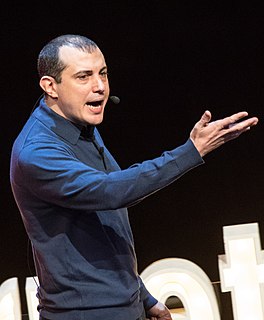A Quote by Raj Kundra
We all have trust in the judicial systems.
Quote Topics
Related Quotes
Abstract systems depend on trust, yet they provide none of the moral rewards which can be obtained from personalised trust, or were often available in traditional settings from the moral frameworks within which everyday life was undertaken. Moreover, the wholesale penetration of abstract systems into daily life creates risks which the individual is not well placed to confront; high-consequence risks fall into this category. Greater interdependence, up to and including globally independent systems, means greater vulnerability when untoward events occur that affect those systems as a whole.
This trial cannot be separated from the process of the historical struggle in Palestine that continues today between the Zionist Movement and the Palestinian people, a struggle that centers on Palestinian land, history, civilization, culture and identityAs for your judicial apparatus, which is where this court comes from: it is one of the instruments of the occupation whose function is to give the cover of legal legitimacy to the crimes of the occupation, in addition to consecrating its systems and allowing the imposition of these systems on our people through force.
Judicial activists are nothing short of radicals in robes--contemptuous of the rule of law, subverting the Constitution at will, and using their public trust to impose their policy preferences on society. In fact, no radical political movement has been more effective in undermining our system of government than the judiciary. And with each Supreme Court term, we hold our collective breath hoping the justices will do no further damage, knowing full well they will disappoint. Such is the nature of judicial tyranny.
If Americans loved judicial activism, liberals wouldn't be lying about what it is. Judicial activism means making up constitutional rights in order to strike down laws the justices don't like based on their personal preferences. It's not judicial activism to strike down laws because they violate the Constitution.
A lot of the so-called systems composers have this thing that the system is always right. You don't fiddle with it at all. Well, I don't think that. I think the system is as right as you judge it to be. If for some reason you don't like a bit of it you must trust your intuition on that. I don't take a doctrinaire approach to systems.
I do think the whole question of judicial accountability is a complicated one. On the one hand, you want to encourage judicial independence. And it's always, I think, problematic when an unpopular decision triggers a recall election. Because it sends a disempowering message to judges. On the other hand, it's the only way that voters have to rein in someone whose views are really so out of the mainstream of public opinion that they jeopardize the legitimacy of the judicial process.

































